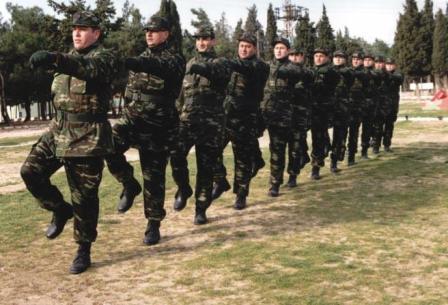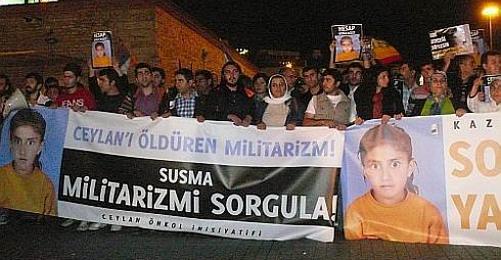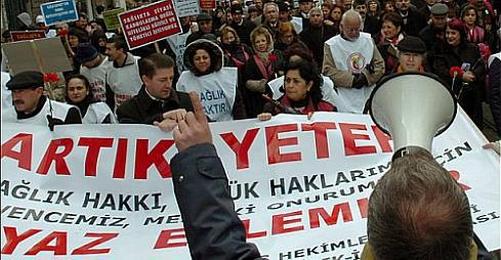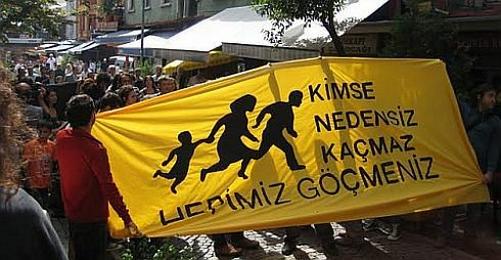Renewed Discussions about Military Service

Ömer Faruk Eminağaoğlu, president of the Union of Judges and Prosecutors (YARSAV) said in an interview with the Zaman newspaper that the constitution did not specify “military service” when it talked about “service to the country”.
He argued that it was military and not legal rules that made conscientious objection impossible.
This prompted Radikal newspaper writer Ersin Tokgöz to criticise Eminağaoğlu, accusing him of trying to legitimise his own exemption from military service on medical grounds by saying that service to the country need not necessarily mean military service.
However, Oğuz Sönmez of the Pacifist Initiative (Savaş Karşıtları) points out, “Although I find his relations with Ergenekon problematic, the YARSAV president defended the right to conscientious objection before he got his medical report.” Sönmez cited an article that Eminağaoğlu wrote for Radikal newspaper on 22 July 2005 as evidence.
Arbitrary application of Article 318
Sönmez continued, “However, it is impossible not to agree with Tokgöz, who says that all statements concerned with the military service face punishment under the arbitrary application of Article 318 for ‘alienating the public from military service’, and that it is never clear who will be put on trial or not, and who will be acquitted or sentenced.”
“(Conscientious objectors) Halil Savda and Doğan Özkan were easily convicted, journalist Perihan Mağden is on trial, singer Bülent Ersoy has been acquitted. Decisions on a totally abstract accusation are left up to the judges.”
Sönmez emphasises that Eminağaoğlu is not the first lawyer to have defended conscientious objection, pointing out that the Office of Chief of Staff has published articles written by an Ersin Kaya and supporting conscientious objection in its own magazine.
A million people not willing to go
Minister of Defence Vecdi Gönül has announced that the number of young men who are obliged to do military service is 14 million, 306 thousand 525. Around 1 million of these have postponed military service (e.g. for education reasons) or are dodging the draft.
Sönmez points out that this number includes conscientious objectors, draft dodgers and those who cannot go to the military for financial or other reasons. “In Turkey, military service continues to represent social and political oppression.”
He further criticised the government for not making any changes since the European Court of Human Rights convicted the country for its treatment of conscientious objector Osman Murat Ülke.
"Alternative service possible"
Meanwhile, constitutional law expert Ertuğrul Cenk Gürcan has said that it is possible to make conscientious objection legal. He suggests that there could be a solution for those demanding to pay instead of doing military service, for those who do not want to carry arms, and for those who do not want to join the army because of family or financial problems:
“We do not have to marginalise conscientious objection in the name of preserving Turkey’s social and political structure. It can be left up to the individual. Those who want to, could work as teachers, nurse’s aids, etc. in order to carry out public service. In summary, if there was a choice of services, this problem could be solved.”
He added that current resistance to conscientious objection was not legal but political.
Campaign to allow paid exemption
A growing number of people is joining the call for exemption from military service on a large scale. Around 16,000 people have come together as the “Platform for Paid Exemption”.
The platform has written to pop singer Tarkan, who benefitted from the rule that anyone employed abroad for more than three years can pay to be exempted from military service (only doing one month nominal basic training) and to Emine Erdoğan, wife of the Prime Minister.
They are collecting signatures anda re planning to write to the President, the Prime Minister, the commanders of the armed forces, MPs, NGOs, newspapers, columnists and other media organs.
Military service creates unemployment
One of the arguments of the platform is that the men who do their military service often lose their jobs. Many are also employers themselves, and have to dismiss their employees, thus adding to the already high number of unemployed people.
“Our aim is not to be a burden to our country, but to be of use”, says the platform, appealing to the Minister of Finance, Kemal Unakıtan:
“If a paid exemption was passed, at least 250,000 people would apply. Even if we ignore the money that this would raise, let us assume that these 250,000 people directly or indirectly provide work to four people. If these people go to the army, then 1 million people will be left unemployed in addition to themselves, meaning an increase of 1,250,000 unemployed.”
“We know that we cannot go on with this budget deficit for the next ten months.”
They have demanded that Unakıtan put forward a new proposal for paid exemption.
"Not enough soldiers"
Minister of Defence Vecdi Gönül has replied to the demands, saying:
“According to Law 111, when there are more soldiers than needed, the General Staff tells the Ministry of Defence, and paid exemption is applied to the excess number of people. But at the moment paid exemption is not on the agenda. The General Staff has announced that there are not enough people applying to do their military service.”
Spokesperson of the General Staff, General Metin Gürak has said that the Turkish Armed Forces are not working on such a proposal.
Paid exemption seen as threat to nationalism
Sönmez of the Pacifist Initiative said, “The General Staff is aware of the relaxation this would create in society and how employed people would benefit, and that is why it is not giving permission. At the moment civil war is aimed for, and nationalist discourses are more prominent than ever. Paid exemption would only create problems for the army.”
He finds the claim that there are not enough soldiers “ridiculous”.
Precedent in 1999
Paid exemption was last applied after the Gölcük earthquake in Turkey in 1999. 72,000 people made use of this programme, which provided the government with an extra income of 1 billion 66 million German Marks. (EZÖ/AG)
Politician and NGOs Urge for Clarification of Önkol's Death

EU PROGRESS REPORT
Women's Rights Must be Implemented in Daily Life

Protests against Health Care Contribution Rate

Greens Launch Trial for Palovit Valley

"When Will Mohsen Abdolkhani and Hamid Karimnia Be Released?"










